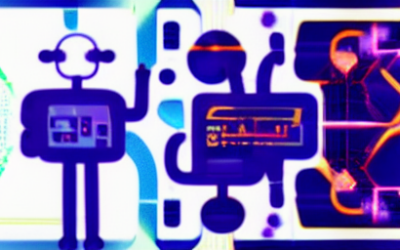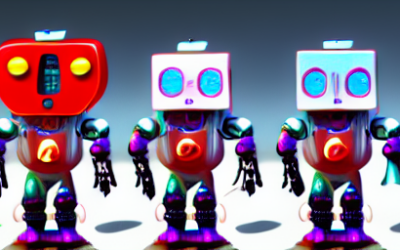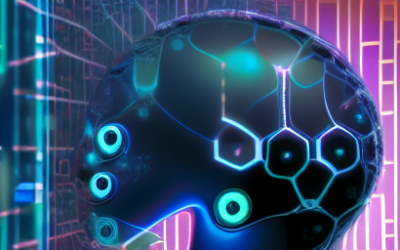At the heart of AI’s capabilities are intelligent systems known as AI agents. These agents possess the ability to perceive their environment, make decisions, and take actions based on their objectives. In this blog post, we will demystify AI agents by exploring their fundamental building blocks and shedding light on how they operate.
Tech Blog
Tech Insights, Information, and InspirationAI Model Agents and the Future of Work: Augmenting Human Capabilities and Redefining Job Roles
AI model agents have the potential to augment human capabilities in numerous ways, providing enhanced support and efficiency across various industries. By leveraging machine learning algorithms and deep neural networks, these agents can analyze complex data sets and extract valuable insights, allowing humans to make more informed decisions.
The Power of Transfer Learning: Leveraging Pre-trained Models for Faster AI Development
Transfer learning enables developers to leverage pre-trained models and adapt them to specific tasks, saving time, computational resources, and data requirements. In this blog post, we will explore the power of transfer learning and its profound impact on accelerating AI development.
GPT-3.5: The Next Generation of Language Models
Developed by OpenAI, GPT-3.5 represents a significant leap forward in the capabilities of artificial intelligence, opening up new possibilities for communication, creativity, and problem-solving. In this blog post, we will delve into the features, improvements, and potential applications of GPT-3.5.
The Emergence of Reinforcement Learning: Training AI Agents to Learn from Experience
Reinforcement learning can be seen as a simulation of how humans learn from experience. Just as a child learns to navigate the world by trial and error, reinforcement learning enables AI agents to learn through interaction with an environment.
Responsible AI: Navigating the Ethical Landscape of Artificial Intelligence
Responsible AI: The concept of designing, developing, and deploying AI systems in an ethical and socially responsible manner. Responsible AI considers aspects such as fairness, transparency, accountability, privacy, and the potential impacts of AI on society.
Understanding GANs: How Generative Adversarial Networks are Transforming AI
In the world of artificial intelligence, Generative Adversarial Networks, or GANs, have emerged as a powerful and revolutionary concept. With their ability to generate realistic and high-quality synthetic data, GANs have captured the attention of researchers, developers, and enthusiasts alike. These networks are transforming the way we approach various AI applications, from computer vision and image synthesis to natural language processing and even drug discovery.
Mastering N-Shot Learning: Tackling Few-Shot Challenges with Innovative AI Techniques
N-shot learning is a type of machine learning problem where a model is required to learn from a very limited number of examples (usually N examples) for each class during training. It is a subfield of few-shot learning, which focuses on training models to recognize new objects or categories based on a small number of samples.
GPT Few-Shot Learning
GPT few-shot learning refers to the ability of Generative Pre-trained Transformer (GPT) models to learn and generalize from a small number of examples or training instances, also known as “few-shot learning.” In the context of GPT models like GPT-3, few-shot learning demonstrates the model’s capacity to understand and perform tasks with very limited guidance or additional training.
A Guide to AI Buzzwords
Artificial Intelligence (AI) has become an integral part of our digital landscape, transforming industries and businesses with its innovative applications. With rapid advancements in AI technology, several buzzwords have emerged that dominate conversations about this fascinating field.
Get In Touch
UseTech Design, LLC
TROY, MI • BLOOMFIELD HILLS, MI
Call or text +1(734) 367-4100










